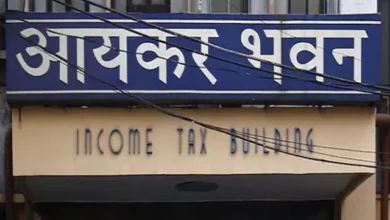Sebi Announces Investor Services Fund and Investor Protection Fund Guidelines
The Securities and Exchange Board of India (Sebi) announced recommendations for the Investor Protection Fund (IPF) and the Investor Services Fund (ISF) on May 30, 2023 in an effort to improve investor protection and foster investor education.
How Do These Funds Work?
Earlier in 2004, Sebi had ordered that stock exchanges maintain a special fund, known as IPF, to compensate investors in the event that trading members defaulted or were expelled.
To support investor education, awareness programmes, and training activities to promote securities market literacy and increase participation in the securities market, Sebi had previously encouraged stock exchanges to create the ISF in 1992.
Sebi has just released a new circular that modifies the terms of these funds. On June 29, 2023, the circular’s provisions will take effect. These changes are intended to improve investor rights protection and facilitate the use of these funds.
New IPF-Related Provisions
IPF operated by separate trusts must be established by stock exchanges and depositories. Five trustees, comprising directors, a representative of the investor association, and the compliance office, will make up the IPF Trust.
The stock exchanges have also been requested to guarantee that funds are properly separated and shielded from exchange and depository obligations.
Additionally, stock exchanges are required to make contributions to the IPF through a variety of channels, including a quarterly contribution of 1% of listing fees, interest on 1% security deposits held by issuer companies during securities offerings, fines gathered from trading members, and contributions based on transaction fees levied on trading members.
In addition, according to Sebi, the IPF must receive at least 70% of any interest or revenue from investments made using IPF corpus.
The fund should be used by stock exchanges to handle investment claims from customers of failing trading members and provide temporary assistance to impacted investors. The money should instead be used by depositories to support initiatives from depository participants, assist beneficial owners’ legal rights, and for any other Sebi-approved reasons.
A new standard operating procedure (SOP) has also been created by Sebi to simplify the system for handling IPF claim settlements.
New SOP For Resolving IPF Claims
The new SOP mandates that stock exchanges quickly notify investors through public notifications, SMS alerts, and emails the day after disabling a trading member (TM) on a certain day (T).
Within 15 days, clients of the defaulting TM will get pre-filled claim forms with thorough information on their cash, securities balances, and trading information.
Additionally, within 75 days, these customers must evaluate the forms, make any necessary corrections, and provide supporting documentation, such as bank and dematerialized account statements. The Member and Core Settlement Guarantee Funds Committee (MCSGFC) will then examine and approve the claims before the stock exchange processes them if they are complete.
Claims that are filed within the allowed time frames will be resolved 135 days after filing. The MCSGFC may suggest paying authorised claims from the IPF in cases when the defaulter’s assets are inadequate. Clients may also request a review of their claims from the MCSGFC, and if they’re not satisfied, they can submit a petition for a review to a panel of Public Interest Directors (PIDs) within 90 days.
ISF-Related Provisions
Additionally, stock exchanges have been instructed to provide the ISF 20% of listing costs. This money will be used for public services including investor education, awareness campaigns, and training programmes. The administration and use of the ISF money will be under the regulatory oversight committee’s watch. It should be noted that at least 50% of the ISF corpus should go towards projects in Tier-II and Tier-III cities. The IPF corpus will continue to hold the interest that was generated on the ISF.







